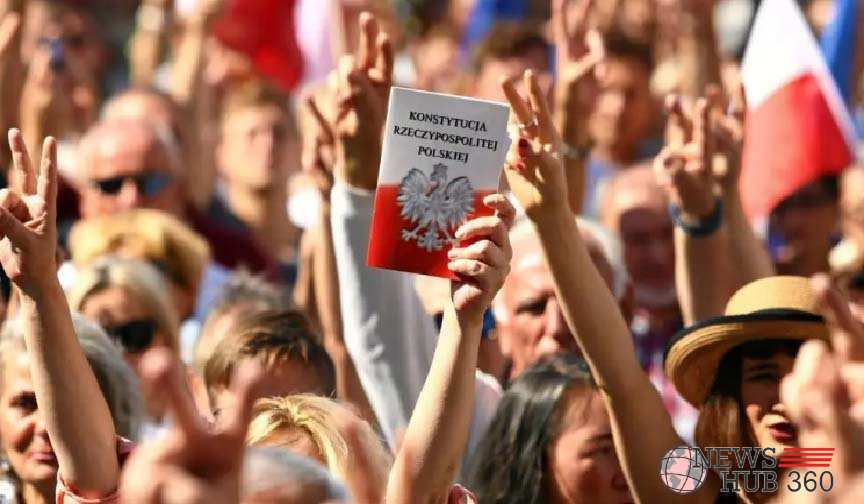Introduction
Social media has become a virtual public square for conversations, debates, and even activism. But what happens when governments step in to regulate these platforms? In Poland, social media regulations have sparked significant discussions about digital freedom, responsibility, and the role of big tech. If you’re curious about how Poland manages these digital landscapes, this article is your go-to guide. Think of it as your roadmap through the maze of rules shaping online behavior in Poland.
Poland Social Media Regulations Rules Overview
| Aspect | Description | Examples/Implications |
|---|---|---|
| Content Moderation | Platforms must remove illegal content swiftly. | Hate speech, terrorism-related posts. |
| Free Speech Protections | Safeguards against unnecessary censorship. | Appeals allowed for removed content. |
| Platform Accountability | Platforms held responsible for violations. | Large fines for non-compliance. |
| User Transparency | Clear terms of use must be provided. | Easier access to content moderation rules. |
| Reporting Mechanisms | Easy ways to report illegal or harmful posts. | User-friendly complaint portals. |
| Regulatory Body | Government oversight of digital platforms. | Special committees ensure compliance. |
| Data Privacy | GDPR-compliant rules enforced. | User data must be stored securely. |
| Political Advertising | Stricter rules for transparency in ads. | Disclosures required for sponsored content. |
| Appeals Process | Users can challenge unfair actions. | Resubmission for removed posts. |
| Penal Actions | Fines or legal actions for violations. | Hefty fines for repeated offenses. |
Why Are Social Media Regulations Needed?
Social media is a double-edged sword. It connects people, but it can also amplify harmful content, misinformation, and cyberbullying. Without regulations, platforms could become chaotic, leaving users unprotected. Poland’s rules aim to balance freedom of expression with accountability.
Imagine a bustling city with traffic lights. Without them, there’s chaos. Poland’s social media regulations act like those traffic lights—guiding, not stifling, the flow of digital conversations.
Key Aspects of Poland’s Social Media Laws
1. Combating Illegal Content
Poland mandates that platforms remove illegal content swiftly, often within 24 hours. This includes posts promoting hate speech, terrorism, or child exploitation. Failure to comply could result in hefty fines.
2. Safeguarding Free Speech
Poland’s laws emphasize protecting users from arbitrary censorship. Platforms must provide clear reasons for removing content and allow users to appeal decisions. This ensures that platforms don’t misuse their power.
3. Ensuring Transparency
Transparency is at the core of Poland’s regulations. Social media platforms must disclose their content moderation policies, making it easier for users to understand their rights and responsibilities.
The Role of Poland’s Regulatory Authorities

Poland has established a regulatory body to oversee compliance with social media rules. This agency ensures platforms follow the laws, mediates disputes, and imposes penalties when necessary.
Impact on Social Media Platforms
Increased Accountability
Platforms like Facebook, Instagram, and Twitter face stricter oversight. They are required to actively monitor content and respond to user complaints promptly.
Operational Challenges
Implementing these rules requires resources. Platforms may need to hire more moderators or update their systems, which could increase operational costs.
Impact on Users
1. Empowering Users
Users now have better mechanisms to report harmful content and appeal unfair actions. This empowers them to take control of their digital experience.
2. Privacy Protections
Poland’s regulations align with GDPR, ensuring that user data is handled responsibly and stored securely.
Criticism and Challenges
1. Concerns Over Free Speech
Some critics argue that these rules could lead to over-censorship, stifling open dialogue. Balancing free speech with regulation is a delicate act.
2. Platform Overload
Smaller platforms may struggle to comply with the regulations due to limited resources, potentially reducing competition in the market.
Poland’s Regulations vs. Global Standards
Poland’s approach to social media regulation mirrors global trends but also sets unique benchmarks. Unlike some countries, Poland emphasizes user appeal rights and transparency, making it a model for balanced digital governance.
FAQs
1. What are the main objectives of Poland’s social media regulations?
The regulations aim to combat illegal content, protect free speech, and ensure platform accountability, all while safeguarding user privacy.
2. How quickly must platforms remove illegal content?
Platforms are required to remove illegal content within 24 hours to avoid penalties.
3. Can users appeal if their content is unfairly removed?
Yes, Poland’s regulations allow users to challenge content removal decisions through an appeals process.
4. How does Poland’s regulatory body enforce these rules?
The regulatory body monitors compliance, mediates disputes, and imposes fines for violations.
5. Do these regulations apply to all social media platforms?
Yes, the rules apply to all platforms operating in Poland, regardless of their size or origin.
Conclusion
Poland’s social media regulations rules are a bold step toward creating a safer and more transparent digital environment. While challenges exist, these laws reflect a growing need to balance freedom and accountability in the online world. By understanding these rules, users and platforms alike can navigate the digital landscape more responsibly.
Whether you’re a casual user or a platform owner, staying informed about these regulations can make your social media experience smoother and more secure. So, what do you think? Are these rules a step forward or a potential roadblock for free speech?
MORE VISIT, Newshub360


